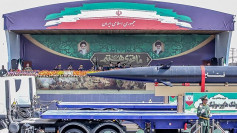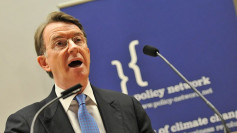With the death of Pope Francis on April 21, the Roman Catholic Church faces a critical juncture as cardinals prepare to gather in conclave to select his successor. The election, expected to occur within the next three weeks, will determine not only the next Bishop of Rome but the direction of a 1.39 billion-member institution grappling with ideological divisions, declining membership in the West, and explosive growth in the Global South.
The conclave will be comprised of 138 cardinal-electors under the age of 80, 110 of whom were appointed by Francis himself. This unprecedented reshaping of the College of Cardinals reflects the late pope's commitment to global diversity and inclusion, which may strongly influence the outcome. The next pope will inherit a Vatican transformed by Francis' reforms and will face mounting pressures to address unresolved issues, including clerical abuse scandals, secularization, and internal calls for greater representation of women and laity.
The voting will take place inside the Sistine Chapel, with daily rounds of secret ballots requiring a two-thirds majority to elect the next pontiff. White smoke from the chapel's chimney will signal when a new pope has been chosen.
Cardinal Luis Antonio Tagle of the Philippines has emerged as an early frontrunner. With 3:1 odds according to betting markets, Tagle, 67, is widely seen as the candidate most likely to extend Francis's progressive vision. As former archbishop of Manila and current head of the Congregation for the Evangelization of Peoples, Tagle is admired for his pastoral tone and deep alignment with Francis's focus on social justice and the poor. His election would mark the first papacy from Asia, a continent where Catholicism is expanding rapidly.
Italy's Cardinal Pietro Parolin, 70, sits close behind with 4:1 odds. As the Holy See's Secretary of State since 2013, Parolin has been the Vatican's chief diplomat, managing delicate negotiations with China and Middle Eastern powers. Seen as a theological moderate, Parolin is considered a continuity candidate who could stabilize the Church while avoiding the sharp ideological swing that some conservatives are hoping for.
Cardinal Peter Turkson of Ghana, a longtime voice on global development and climate action, is another prominent candidate. At 76, Turkson served as the head of the Vatican's Dicastery for Promoting Integral Human Development and is closely associated with Francis's environmental encyclical, Laudato Si'. His election would represent the first African pope in over 1,500 years.
Cardinal Peter Erdő of Hungary is regarded as a leading conservative alternative. Erdő, 72, a canon law scholar and former president of the Council of European Bishops' Conferences, has emphasized doctrinal orthodoxy and outreach to Eastern Christians. For cardinals looking to shift back toward the model of John Paul II or Benedict XVI, Erdő may offer a familiar theological anchor.
Other candidates include Malta's Cardinal Mario Grech, secretary-general of the Synod of Bishops and a close Francis ally, and Cardinal Matteo Zuppi of Bologna, known for his diplomatic efforts in peace negotiations and deep pastoral sensibility. Also still considered, though now in his eighties, is Italy's Cardinal Angelo Scola, a long-standing papal contender and former Archbishop of Milan, who was among the top vote-getters in the 2013 conclave.
The Vatican will enter a "sede vacante" period until the new pope is elected. Cardinal Kevin Farrell, currently serving as camerlengo, will oversee Vatican affairs but lacks the authority to make doctrinal changes. A nine-day mourning period known as novemdiales will precede the conclave, providing time for global cardinals to arrive and for informal coalition-building to begin.
The ideological direction of the Church hangs in the balance. Francis' decentralizing reforms, openness to LGBTQ+ Catholics, and call for a more merciful and inclusive Church have galvanized progressives while alarming traditionalists. His successor will either consolidate these changes or begin a rollback toward a more conservative papal vision.





